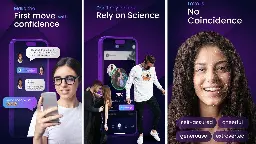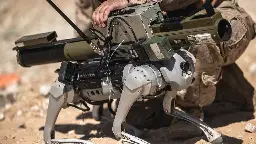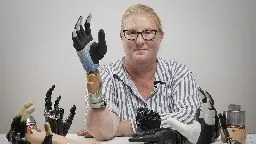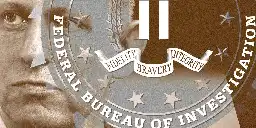The age matters less than the power-dynamics of her being his nanny.
I'm not sure if "optimized" is the right word for my stack at the moment. Optimized in the sense that it is small, sure, but it does come at a performance cost - as much as I love Ruby, e.g. doing font rendering in Ruby is only viable because you only need to render each glyph once per size you use, for example. But I feel the performance tradeoff is acceptable. For me at least.
The terminal is also nothing "special" yet, other than the fact it's written in Ruby, and uses that Ruby font-renderer. It needs some serious bug fixes and cleanups and then that too will go on Github.
For me the tradeoff is that I get full control, and there are a few things I want to experiment with:
-
Since it can parse escape codes, there's nothing preventing a thin IO wrapper so it's possible to use the backend to output to an X11 window. Benefits of that would be being able to e.g. use part of a window for text output while rendering other things in the rest of the window, or plugging in your own code to augment the rendering in various ways.
-
But if you do that, you can strip out the escape code parsing, or bypass it, and use the underlying terminal buffer for the same purpose. E.g. my text editor already renders to a terminal-like buffer, and so when running under X it'd save going through the terminal pipeline, and I'd have the option of "upgrading" its rendering while keeping most of it pure text.
-
I'd like to play with ways to do filtering and post-processing of content. E.g. highlighting based on running Ruby code over the output.
Especially since a large part of my use is my editor, augmenting the backend with support for small "upgrades" w/GUI features, like letting Ruby apps that pull in the backend control and respond to a scrollbar in the terminal, or "replace" the scrollback buffer w/control over the editors buffer, or plugins to add a minimap, to make it really easy to write Ruby apps that work in any terminal but that can get extra features when it can open its own windows would be interesting.
At this point my window manager, terminal, file manager, and text editor, as well as a bunch of utilities like contextual popup-menus for my file manager (similar to 9menu, fed by a script) are written in pure Ruby, including the X11 client bindings and the TrueType font-renderer. I really would love to see Ruby get more use outside of Rails, as I have no interest in Rails, and Ruby has a lot to offer there. E.g. you might think it'd be too slow for a font-renderer, and while it's slow-ish you only need to render each glyph once per size as you use them so it works just fine and the whole font renderer is only 588 lines currently... Extend this across many of your main tools and you gain a system far easier to understand and modify to my own needs. E.g. my terminal is about 1800 lines of code. Xterm is about 88,000. Of course xterm does more, but most of things I don't need. Trying to add features I want to xterm would be a massive pain; adding it to 1800 lines of Ruby on the other hand is comparatively easy.
I'm slowly packaging up more of these tools, but the big caveat is that I'm not really writing these "for users" but for my own use, and I have peculiar preferences (e.g. very minimalist) and so these would not be pleasant for others to actually use, hence the over the top warnings :)
It's surprisingly easy to get an absolutely minimal wm working, though. E.g. this was my very first version (based on a C example called TinyWM): https://gist.github.com/vidarh/1cdbfcdf3cfd8d25a247243963e55a66
That is in fact all you need to do for a minimalist wm (that one is "just" floating and just a single desktop).
99% of the pain past that is learning all the quirks of how X11 works more so than the rest of the logic. E.g. after restarting it last night, for some reason the grab of the windows key + mouse button "broke" without a single code change on my end. I'm doing something wrong, clearly, but last time I ran into this it eventually "resolved itself", so it's hard to debug...
But to use this at this point you really need to actually enjoy chasing down those things. Hopefully it'll get closer to something usable for other people at some point down the line.
An X11 window manager in pure Ruby. Contribute to vidarh/rubywm development by creating an account on GitHub.

What the title says. It's <1k lines of Ruby, and provides a basic tiling WM w/some support for floating windows. It's minimalist, likely still buggy and definitely lacking in features, but some might find it interesting.
It is actually the WM I use day to day
Using dRuby to achieve simple live reconfiguration ability, without the need for constant checking an external database or restart the application.
Ken Klippenstein, Steven Monacelli, and Alan MacLeod were all suspended from the platform.

The manchild strikes again.
I feel like you are one of the people who feel that AI is just going to be the future with no real problems to anyone who matters. We can’t stop it, we can’t regulate it in any way whatever; and people should just move out of the way, give up and if they can’t find a place in the new world, die already. Artists don’t matter, writers don’t matter and anyone impacted by this new system doesn’t matter. The algorithm is all that matters.
If I thought that, I wouldn't have emphasised the need to sort out the funding issue, and argued that just regulation will be insufficient to solve it.
I think it will cause a massive degree of upheaval. I don't think regulation has any hope in hell of preventing upheaval significant enough that unless a solution is found to ensure better distribution of wealth it will cause violence and uprisings and governments to fall. Not necessarily in and of itself, but in accelerating a process of reducing the monetary value of labour.
I can’t know anything about LLMs, machine learning or anything about this.
I've not suggested anything of the sort.
How you can interpret anything I've written as suggesting I don't think there will be problems is beyond me.
You therefore throw out the idea that bias exists due to tagging systems.
I've done no such thing.
Quick iteration is definitely the big thing. (The eye is fun because it's so "badly designed" - we're stuck in a local maxima that just happens to be "good enough" for us to not overcome the big glaring problems)
And yes, if all the inputs are corrupted, the output will likely be too. But 1) they won't all be, and as long as there's a good mix that will "teach" the network over time that the difference between a "corrupted cat" and an "uncorrupted cat" are irrelevant, because both will have most of the same labels associated with them. 2) these tools work by introducing corruption that humans aren't meant to notice, so if the output has the same kind of corruption it doesn't matter. It only matters to the extent the network "miscorrupts" the output in ways we do notice enough so that it becomes a cost drag on training to train it out.
But you can improve on that pretty much with feedback: Train a small network to recognize corruption, and then feed corrupted images back in as negative examples to teach it that those specific things are particularly bad.
Picking up and labelling small sample sets of types of corruption humans will notice is pretty much the worst case realistic effect these tools will end up having. But each such countermeasure will contribute to training sets that make further corruption progressively harder. Ultimately these tools are strictly limited because they can't introduce anything that makes the images uglier to humans, and so you "just" need to teach the models more about the limits of human vision, and in the long run that will benefit the models in any case.
So what you are saying is open ai should get the public grants for artists to give to artists?
No. What in the world gave you that idea? I'm saying artists or companies employing artists should get grants, just like is the case for a large number of grants now. I'm saying I'd like to see more of that to compensate for the effects being liberal about copyright would have.
I understand it isn’t trained for anything, I have done training with them. The training leads to homogeneous outcomes. It had been studied as well. You can look it up.
There is no "the training". There are a huge range of models trained with different intent producing a wide variety in output to the point that some produces output that others will just plain refuse.
Dall-e 3 still isn’t good enough to be competitive.
Dall-E 3 isn't anywhere near leading edge of diffusion models. It's OpenAI playing catch up. Now, neither Midjourney or Firefly, nor any of the plethora of Stable Diffusion derived models are good enough to be competitive with everyone without significant effort either, today, but that is also entirely irrelevant. Diffusion models are two years old, and the pace of the progress have been staggering, to the point where we e.g. already have had plenty of book-covers and the like using them. Part of the reason for that is that you can continue training of a decent diffusion model even on a a somewhat beefy home machine and get a model that fits your needs better to an extent you can't yet do with LLMs.
Asking and crediting would go a long way to help fix the financial challenge. Because it is a start to adding a financial component. If you have to credit someone there becomes an obligation to that person.
If there is a chance crediting someone will lead to a financial obligation, people will very quickly do the math on how cheaply they can buy works for hire instead. And the vast bulk of this is a one-off cost. You don't need to continue adding images to teach the models already known thing, so the potential payout on the basis of creating some sort of obligation. Any plan for fixing the financial challenge that hinges on copyright is a lost cause from the start because unless it's a pittance it creates an inherent incentive for AI companies to buy themselves out of that obligation instead. It won't be expensive.
I don’t see these grants or public funding ever covering a private company for one.
Companies are by far the largest recipients of public funding for art in many countries and sectors. Especially for e.g. movie production in smaller languages, but also in other sectors.
And for two, I don’t see AI art ever actually getting to the point where it fully replaces artists.
I do agree it won't fully replace artists, but not because it won't get to the point where it can be better than everyone, but because a huge part of art is provenance. A "better Mona Lisa" isn't worth anything, while the original is priceless, not because a "better" one isn't possible, but because it's not painted by Da Vinci.
But that will only help an even narrower sliver than the artists who are making good money today.
It will take time, but AI will eat far more fields than art, and we haven't even started to see the fallout yet.
Because it is trained to make a homogeneous rendering of what you are looking for
Diffusion models are not trained "for" anything other than matching vectors to denoising to within your own tolerance levels of matching to what you are looking for. Accordingly, you'll see a whole swathe of models tuned on more specific types of imagery, and tooling to more precisely control what they generate. The "basic" web interfaces are just scratching the surface of what you can do with e.g. Controlnet and the like. It will take time before they get good enough, sure. They are also only 2 years old, and people have only been working on tooling around then for much less than that.
Open AI might be sitting on Microsoft money, but how many other companies has Microsoft gobbled up over the years? Open AI if it starts to struggle will just fall under the Microsoft umbrella and become part of its massive conglomerate, integrated into it. Where are our AR goggles that we are supposed to all be wearing, Microsoft and Google both had those? So many projects grow and die with multiple millions thrown at them. All end up with crazy valuations based on future consumer usage. As we all can’t even afford rent.
OpenAI is just one of many in this space already. They are in the lead for LLMs, that is text-based models. But even that lead is rapidly eroding. They don't have any obvious lead for diffusion models for images. Having used several, it was first with the recent release of DallE 3 that it got "good enough" to be competitive.
At the same time there are now open models getting close enough to be useful, so even if every AI startup in the world collapsed this won't go away.
There is also this idea that people wouldn’t willing contribute if just asked.
That's fine, but that doesn't fix the financial challenge.
It doesn't need to "develop its own style". That's the point. The more examples of these adversarial images are in the training set, the better it will learn to disregard the adversarial modifications, and still learn the same style. As much as you might want to stop it from learning a given style, as long as the style can be seen, it can be copied - both by humans and AI's.
As long as people aren't ready for it, then it doesn't solve the immediate problem that needs to be solved today.
If you work on commission only online, or never went to art school those won’t cover you.
There's no reason it has to stay like that. And most people in that position are not making a living from art as it is; expanding public funding to cover a large proportion of working artists at a better level than today would cost a pittance.
These large tech companies become so highly valued at the start because of venture capital and then in 5-10 years collapse under their own weight. How many of these have come up and are now close to drowning after pushing out all competitors? Sorry if I’m not excited about an infusion of cash into a large for profit company that is just gobbling up anything anyone posts online without consent to make a quick buck.
MS, Apple, Meta, Google etc. are massively profitable. OpenAI is not, but sitting on a huge hoard of Microsoft cash. It doesn't matter that many are close to drowning. The point is the amount of cash floating around that enable the big tech companies to outright buy more than enough content if they have to means that regulation to prevent them from gobbling up anything anyone posts online without consent will not stop them. So that isn't a solution. It will stop new entrants with little cash, but not the big ones. And even OpenAI can afford to buy up some of the largest content owners in the world.
The point was not to make you excited about that, but to illustrate that fighting a battle to restrict what they can train on is fighting a battle that the big AI companies won't care if they lose - they might even be better off if they lose, because if they lose, while they'll need to pay more money to buy content, they won't have competition from open models or new startups for a while.
So we need to find other solutions, because whether or not we regulate copyright to training data, these models will continue to improve. The cat is out of the bag, and the computational cost to improving these models keeps dropping. We're also just a few years away from people being able to train models competitive to present-day models on computers within reach of hobbyists, so even if we were to ban these models outright artists will soon compete with output from them anyway, no matter the legality.
Focusing on the copyright issue is a distraction from focusing on ensuring there is funding for art. One presumes the survival of only one specific model that doesn't really work very well even today and which is set to fail irrespective of regulation, while the latter opens up the conversation to a much broader set of options and has at least a chance of providing working possibilities.
I live in the UK and I don't drink beer because I generally, ironically, think beer overall tastes like piss, and yet I still know Tsingtao. It has fairly substantial market recognition in a lot of countries.
I doesn't need to be full on UBI. In a lot of countries grants mechanisms and public purchasing mechanisms for art already make up a significant proportion of income for artists. Especially in smaller countries, this is very common (more so for literary works, movies and music where language provides a significant barrier to accessing a bigger audience, but for other art too). Imagine perhaps a tax/compulsory licensing mechanism that doesn't stop AI training but instead massively expands those funding sources for people whose data are included in training sets.
This is not stoppable, not least because it's "too cheap" to buy content outright.
I pointed out elsewhere that e.g. OpenAI could buy all of Getty Images for ~2% of their currently estimated market cap based on a rumoured recent cash infusion. Financing vast amounts of works for hire just creates a moat for smaller players while the big players will still be able to keep improving their models.
As such it will do nothing to protect established artists, so we need expansion of ways to fund artists whether or not inclusion of copyrighted works in training sets becomes restricted.
You wouldn't want to. If you just feed it to the models, then if there are enough of these images to matter the model will learn to ignore the differences. You very specifically don't want to prevent the model from learning to overcome these things, exactly because if you do you're stuck with workarounds like that forever, but if you don't the model will just become more robust to noisy data like this.
An AI model will "notice them" but ignore them if trained on enough copies with them to learn that they're not significant.
Yes: Train on more images processed by this.
In other words: If the tool becomes popular it will be self-defeating by producing a large corpus of images teaching future models to ignore the noise it introduces.
There are likely easier "quick fixes" while waiting for new models, but this is the general fix that will work against almost any adversarial attack like this.
There might be theoretical attacks that'd be somewhat more difficult to overcome to the extent of requiring tweaks to the models, but given that there demonstrably exists a way of translating text to images that overcomes any such adversarial method that isn't noticeable to humans, given that humans can, there will inherently always be a way to beat them.
That's hilarious, given that if these tools become remotely popular the users of the tools will provide enough adversarial data for the training to overcome them all by itself, so there's little reason to anyone with access to A100's to bother trying - they'll either be a minor nuisance used a by a tiny number of people, or be self-defeating.
To me, that's not an argument for regulating AI, though, because most regulation we can come up with will benefit those with deep enough pockets to buy themselves out of the problem, while solving nothing.
E.g. as I've pointed out in other debates like this, Getty Images has a market cap of <$2bn. OpenAI may have had a valuation in the $90bn range. Google, MS, Adobe all also have shares prices that would trivially allow them to purchase someone like Getty to get ownership of a large training set of photos. Adobe already has rights to a huge selection via their own stock service.
Bertelsmann owns Penguin Random-House and a range ofter publishing subsidiaries. It's market cap is around 15 billion Euro. Also well within price for a large AI contender to buy to be able to insert clauses about AI rights. (You think authors will refuse to accept that? All but the top sellers will generally be unable to afford to turn down a publishing deal, especially if it's sugar-coated enough, but they also sit on a shit-ton of works where the source text is out-of-copyright but they own the right to the translations outright as works-for-hire)
That's before considering simply hiring a bunch of writers and artists to produce data for hire.
So any regulation you put in place to limit the use of copyrighted works only creates a "tax" effectively.
E.g. OpenAI might not be able to copy artist X's images, but they'll be able to hire artist Y on the cheap to churn out art in artist X's style for hire, and then train on that. They might not be able to use author Z's work, but they can hire a bunch of hungry writers (published books sells ca 200 copies on average; the average full time author in the UK earns below minimum wage from their writing) as a content farm.
The net result for most creators will be the same.
Even wonder why Sam Altmann of OpenAI has been lobbying about the dangers of AI? This is why. And its just the start. As soon as these companies have enough capital to buy themselves access for data, regulations preventing training on copyrighted data will be them pulling up the drawbridge and making it cost-prohibitive for people to build open, publicly accessible models in ways that can be legally used.
And in doing so they'll effectively get to charge an "AI tax" on everyone else.
If we're going to protect artists, we'd be far better off finding other ways of compensating them for the effects, not least because it will actually provide them some protection.
You can see the difference in the process in the results, for example in how some generated pictures will contain something like a signature in the corner
If you were to train human children on an endless series of pictures with signatures in the corner, do you seriously think they'd not emulate signatures in the corner?
If you think that, you haven't seen many children's drawings, because children also often pick up that it's normal to put something in the corner, despite the fact that to children pictures with signatures is a tiny proportion of visual input.
Or how it is at least possible to get the model to output something extremely close to the training data
People also mimic. We often explicitly learn to mimic - e.g. I have my sons art folder right here, full of examples of him being explicitly taught to make direct copies as a means to learn technique.
We just don't have very good memory. This is an argument for a difference in ability to retain and reproduce inputs, not an argument for a difference in methods.
And again, this is a strawman. It doesn't even begin to try to answer the questions I asked, or the one raised by the person you first responded to.
That at least proves that the process is quite different to the process of human learning.
Neither of those really suggests that all (that diffusion is different to humans learn to generalize images is likely true, what you've described does not provide even the start of any evidence of that), but again that is a strawman.
There was no claim they work the same. The question raised was how the way they're trained is different from how a human learns styles.
This idea that copyright and IP shouldn’t exist at all is kinda absurd.
For the majority of human existence, that was the default.
Copyright exists as an explicit tradeoff between the rights of the public to be able to do as they please with stuff introduced into the public sphere, and a legal limitation infringing on the publics liberty for a limited time for the purpose of encouraging the creation of more works for the public benefit. It was not introduced as some sort of inherent right, but as a trade between the public and creators to incentivise them.
Stripping it away from existing artists who has come to depend on it without some alternative would be grossly unfair, but there's nothing absurd about wanting to change the bargain over time. After all, that has been done many times, and the copyright we have now is vastly different and far more expansive and lengthy than early copyright protection.
Personally, I'd be in favour of finding alternative means of supporting creators and stripping back copyright as a tradeoff. The vast majority of creators earn next to nothing from their works; only a very tiny minority makes a livable wage of art of any form at all, and of the rest the vast majority of profits take place in a very short period of initial exploitation of a work, so we could allow the vast majority to earn more from their art relatively cheaply, and affect the rest to a relatively limited degree, while benefiting from the reduced restrictions.
Society is built to distribute wealth, so that everyone can live a decent life.
As a goal, I admire it, but if you intend this as a description of how things are it'd be boundlessly naive.
Wealthiest 3,000 working on ‘edge of legality’ using shell companies to funnel dividends and own property to avoid income tax, says study

Norway has a wealth tax, and one of the biggest arguments against it has always been that people can "flee" elsewhere.
The EU is a in a far better position in that respect, and it might embolden others.
An advantage of a wealth tax is that apart from raising money it actively punishes inefficient placement of capital, so apart from having the potential to shift tax burdens it's also an incentive to drive economic growth.
With this new dating app, you can find your soulmate by using artificial intelligence feature named Ruby, which takes personality traits and finds your match.

Phrenology: The discredited, useless, racist pseudo-science, now in your dating app!
A majority of Canadians say the country will face more extreme weather events in the future, calling on the government to take urgent action, according to Ipsos polling

Unsurprising. And I suspect the results wouldn't be very different elsewhere.
And that's why we're fucked.
After losing two votes for House speaker, far-right nominee Rep. Jim Jordan (R-Ohio) was determined to keep fighting. A third vote was held on the House floor on Friday morning, October 20, and this time, things went even worse for Jordan when three Republicans who voted for him before flipped and v...

"All hope lost"? I for home have plenty of hope that this will lead to further hilarity as his vote keeps dropping until they get tired of the circus...
A rocket launcher-toting robot dog could give Marines a valuable new way to remotely attack armored vehicles, especially in urban areas.

Because what could possibly go wrong.
The bionic arm has been working for years, reducing the user’s level of pain. The first person to receive it tells how life changing it has been.

cross-posted from: https://lemmy.world/post/7027429
> ‘Groundbreaking’ bionic arm that fuses with user’s skeleton and nerves could advance amputee care::The bionic arm has been working for years, reducing the user’s level of pain. The first person to receive it tells how life changing it has been.
The Biden administration also bears a wider responsibility for the deterioration in Gaza and the extinguishing of Palestinian political aspirations

Powell was one of 19 defendants named in District Attorney Fani Willis’ indictment, which also charged former President Donald Trump.

Not the big fish, but every bit helps.
Former President Trump holds a narrow lead over President Biden among voters in seven key battleground states that will likely determine the 2024 election, according to a poll released Thursday. A …

We are truly in the end-times. It's bad enough these two are up against each other, but that Trump 1) isn't behind bars, 2) is being taken seriously by anyone with an IQ above that of a turnip *irrespective of who he is running against, makes me lose all faith in humanity. Or in Americans, at least.
Arctic climate scientists tend to be a close-knit community, but the war in Ukraine has upended that status quo.

Profits plunge, sales down in Q3. Multi-year cost cutting drive means staff will be decimated

Who knew they even had that many...
Hollywood actors are on strike over concerns about the use of AI, but for as little as $300, Meta and a company called Realeyes hired them to make avatars appear more human.

In 2021, Thiel, a top tech investor and Trump megadonor, began a secret life as a confidential FBI informant.

The International Criminal Court said Thursday it had released Maxime Mokom, a former militia leader in the Central African Republic CAR, shelving its war crimes case against him after the prosecutor dropped all charges.

Greta Thunberg has gone on another climate change protest a day after being charged with a public order offence.

She's on a roll....
Researchers uncover passage and find that it links up to eight storerooms

